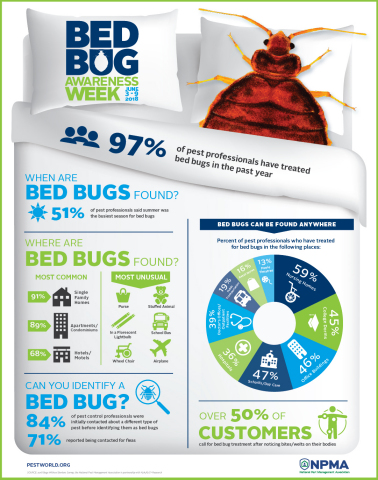The Role Of Parasite Control In Food Safety And Hygiene
The Role Of Parasite Control In Food Safety And Hygiene
Blog Article
Content Writer-Franklin Bunn
Are you aware of the hidden dangers that insects posture to the security and health of your food? From rats to bugs, these unwanted visitors can contaminate your active ingredients, surface areas, and storage space areas.
This article discovers the essential duty of parasite control in maintaining the highest standards of food safety and health. Discover reliable approaches and avoidance steps that will certainly help you shield your business, customers, and reputation.
Don't let parasites jeopardize the quality of your food.
The Influence of Bugs on Food Safety and Health
In your kitchen, insects can have a substantial effect on food safety and security and health. These unwanted guests, such as rodents, pests, and roaches, can pollute your food, surfaces, and utensils with dangerous microorganisms, viruses, and parasites. They can easily access your pantry, cupboards, and even your fridge, leaving behind droppings, pee, and hair.
Not only can they spoil your food by chewing with packaging, yet they can likewise spread illness like Salmonella, E.coli, and Listeria. Picture preparing a dish for your household, not aware that the ingredients you're making use of are already polluted.
It's vital to take immediate action to avoid and control parasites in your cooking area. Rodent extermination services , proper food storage, and expert pest control steps are necessary to make certain food safety and maintain a hygienic environment in your kitchen area.
Effective Pest Control Strategies for the Food Sector
Implementing efficient pest control methods is critical for preserving food safety and security and health in the food sector. By carrying out these approaches, you can protect against bugs from contaminating the food and make sure that your products are safe for consumption.
how to get rid of rats is to frequently examine and monitor your center for indicators of pest activity. This includes checking for droppings, nests, or any damages brought on by bugs.
It's additionally vital to seal all entry points to stop pests from going into the center. Regular cleansing and cleanliness are important, as bugs are attracted to food residue and spills.
Furthermore, Rodent Control is essential to avoid the build-up of food waste that can attract bugs.
Keeping Hygiene Requirements Through Insect Prevention Steps
To keep hygiene criteria, you have to routinely carry out insect prevention steps. By taking positive steps to avoid bugs from entering your food facility, you can ensure the safety and security and cleanliness of your facilities. Below are some effective insect prevention procedures to consider:
- Seal all cracks and crevices: Bugs can get in through also the tiniest openings. Routinely examine and secure any type of spaces in doors, windows, wall surfaces, and floorings to keep bugs out.
- Appropriate waste administration: Throw away food waste immediately and firmly in secured containers. This will decrease the destination of pests and stop invasions.
- Normal cleaning and sanitizing: Maintaining sanitation in your facility is essential. Consistently tidy and sanitize all locations, paying special interest to areas where pests might conceal or breed.
- Execute a monitoring system: On a regular basis inspect your properties for indications of pest task. Set up parasite tracking tools, such as catches or sensors, to recognize and resolve any kind of prospective concerns at an early stage.
Conclusion
So keep in mind, when it concerns food safety and security and health, parasite control plays a vital function.
By implementing reliable bug control techniques and preventive measures, we can ensure the highest criteria of tidiness and security in the food industry.
Do not let bugs endanger the quality of our food; allow's stand together and secure our health and well-being.
